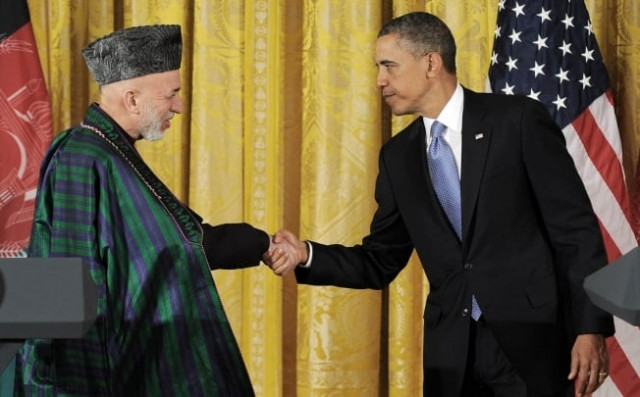First, Afghanistan’s President Hamid Karzai reacted with indignity to the decision made by the Taliban leadership to open an office under the banner of the Islamic Emirates of Afghanistan. Karzai then announced that Afghanistan will not be participating in peace negotiations with the Taliban. What followed was last week’s bombing by the Taliban at the Presidential Compound, believed to be the most secure area in Afghanistan.
The negotiations so far have been inconsequential. No prisoners swapped, no eleventh-hour deal, no power-sharing agreement. There exist only desperate pleas from Secretary Kerry and President Obama to reconsider.
Before dissecting this clutter, it is important to understand where the intersection of the related academic literature lies on negotiated settlements, alongside the recent history on the current negotiations process.
In March of 2009, President Obama unveiled his hyphenated Af-Pak strategy, backing for the first time the idea that reconciliation with some members of the Taliban would be favourable to the long-term security of the region. This strategy, outlined in a white paper, marked a shift in the counter-terrorism approach, particularly with surges in troop levels, increased non-military aid -- notably, in the form of the $7.5 billion Kerry-Lugar-Berman civilian aid package -- alongside the topic of interest: a strategy to reintegrate mid-level Taliban officers, in hopes of incorporating them into the political process.
The guiding directive was that bringing members of the Taliban into the political mix would yield tolerance for the democratic process on part of the rank and file, while also giving the organisation legitimacy as political actors. It was an idea backed by high-quality empirical research.
A study by Political Scientists at RAND Corporation revealed that in the case of all terrorist groups analysed between 1968 and 2006, half of them ended by gradually sinking into the sphere of politics. In only seven percent of the cases did the use of military force result in the end of a group’s operation.
Similarly, another study surveyed 80 disputes from 1990 to 2007, concluding that a mere 7.5 percent of the conflicts ended through a military victory. As Daniel Byman, a professor at Georgetown University observed in a 2006 paper,
“Beginning a dialogue with terrorists is often a necessary first step on the road toward a political settlement and an end to the violence.”
There are however, some obvious precautions that should inform a discussion as sensitive as this one. Critics of negotiations argue that military victories offer a better chance at peace, citing research which shows that robustness of peace is correlated with the use of force.
Monica Toft at the Blavatnik School of Government showed through her research that a decisive military victory results in a longer period of peace. Moreover, she concludes that negotiated settlements result in a less democratic government in post-war years.
Critics also point towards Political Scientist Robert Mandel’s 2005 study, which showed that in modern times:
“54 percent of all peace agreements break down within five years of signature.”
With such pessimism clouding the debate on the possibility of a negotiated settlement, is there a compelling case in favour of negotiations, especially in light of the recent turn of events?
Yes.
To start with, any bargain must be a multilateral affair involving the United States, Afghanistan, Taliban, and Pakistan. Afghanistan and Pakistan have a shared history of warfare, a restive Pashtun base, and most important, a porous border that stretches for hundreds of miles.
Ishtiaq Ahmed, a Visiting Fellow at Oxford, observes that the rank and file of the Taliban is primarily of Pashtun ethnicity. Therefore, reconciliation is in the primary interest of Pakistan, given that unrest in Pakistan’s tribal areas is in large part a spill over from Afghanistan’s eastern wing.
In the normative sense, an agreement sketched under this framework should then have the required pardon of both the Pakistani security establishment as well as the military.
Another strategy seldom discussed within the debate on negotiations is the importance that fringe countries, such as Germany and Norway, may have on the likelihood of success. In a recent Op-ed, Ahmad Rashid, a leading expert on Afghanistan, argued in favour of incorporating the Germans into the negotiations process, if only to ensure a non-partisan outcome. He writes:
“Out of all the countries in the world, the Taliban first approached Germany to send messages to the Americans. The Taliban have trusted the Germans and so it seems does Mr Karzai.”
Given Hamid Karzai’s recent actions, bringing the Germans into the mix can only be a positive sign.
With 2014 fast approaching and leverage on part of both the Afghan government and the United States commensurately waning, it is time Hamid Karzai returns to the bargaining table in order to draft a settlement.
Read more by Hamza here.



COMMENTS
Comments are moderated and generally will be posted if they are on-topic and not abusive.
For more information, please see our Comments FAQ